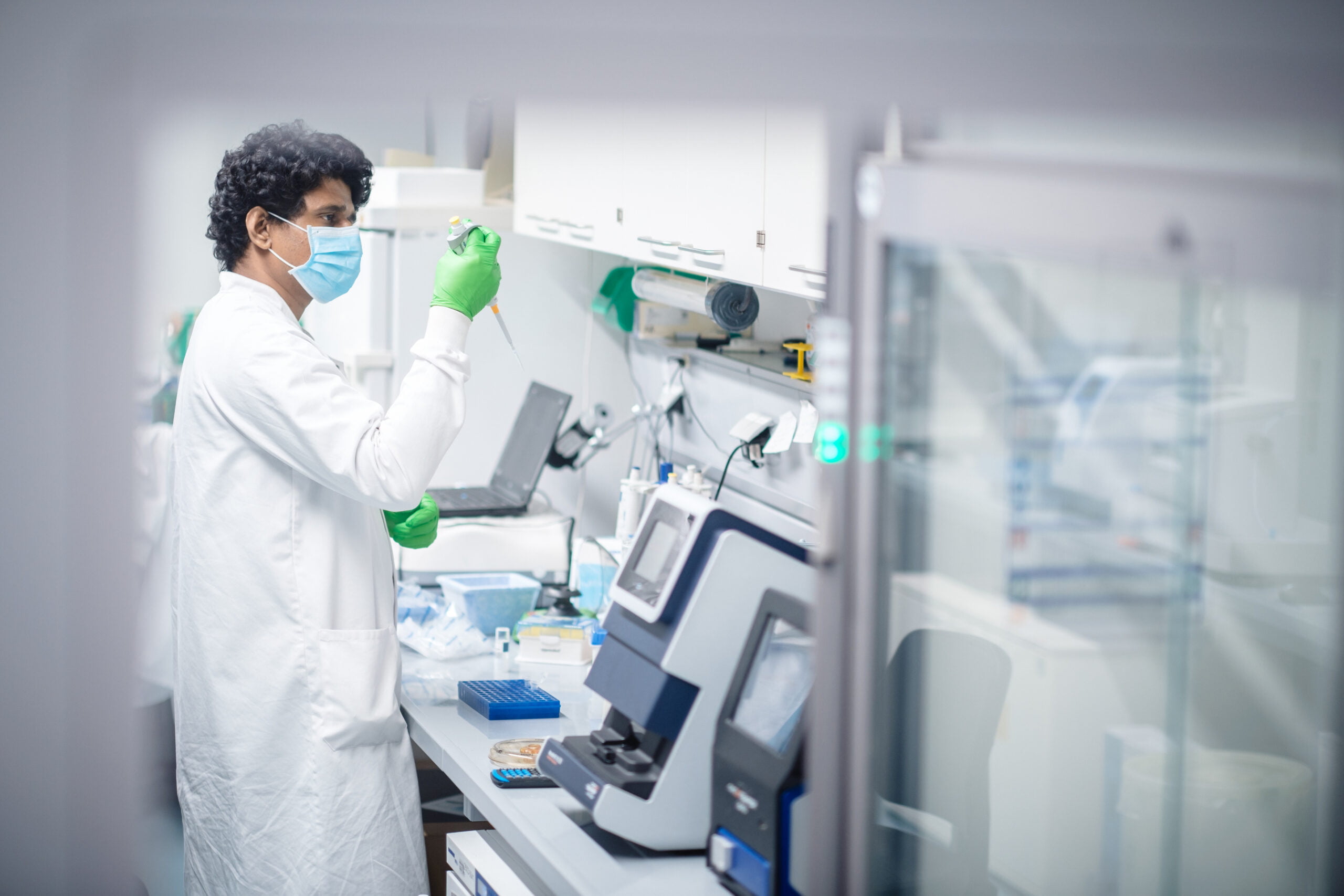BioNTech aims to accelerate personalized medicine with AI

BioNTech and its AI subsidiary InstaDeep have unveiled their AI strategy at an event called "AI Day." The companies plan to use new models and supercomputers to accelerate the development of vaccines and cancer therapies.
With InstaDeep as its in-house AI specialist, BioNTech aims to advance the use of AI in developing personalized vaccines and targeted treatments. A key focus is the DeepChain platform, which uses various omics data for drug design.
BioNTech reports that the platform has already been successfully used in several projects, including the mRNA-encoded antibody platform RiboMab. DeepChain is also available for external partnerships.
The company also unveiled a new supercomputer called Kyber, which is designed to achieve near-exascale performance for large-scale data processing.
Laila: AI Assistant for Lab Tasks
BioNTech and InstaDeep have developed a specialized AI assistant named Laila, based on Meta's open-source Llama 3.1 model. Laila is designed to automate routine tasks in experimental biology, such as DNA sequence analysis and visualization of experimental results.
The system will also connect to lab equipment, monitor ongoing experiments, and report equipment failures. Karim Beguir, CEO of InstaDeep, described Laila to the Financial Times as a productivity accelerator rather than an attempt at full AI automation.
The companies are also focusing on new generative AI models for protein sequence generation, called Bayesian Flow Networks (BFN). In addition, AI is expected to support several areas of the immunotherapy pipeline, including immunohistochemistry, DNA/RNA sequencing, proteomics, protein design, and functional validation in the laboratory.
Google Deepmind is working on a "science large language model"
Other tech companies are also working on AI assistants for scientific research. Google DeepMind CEO Demis Hassabis told the FT that the company is developing a "science large language model" to act as a research assistant and help scientists predict experiment outcomes.
In the coming years, DeepMind's tools aim to propose and design experiments based on given hypotheses and provide scientists with a probabilistic view of potential success or failure, Hassabis said.
Hassabis and Google also operate Isomorphic Labs, a medical AI startup founded in March 2022 that specializes in AI-supported development of new ingredients and drugs. The company acquired its first two major customers earlier this year.
AI News Without the Hype – Curated by Humans
As a THE DECODER subscriber, you get ad-free reading, our weekly AI newsletter, the exclusive "AI Radar" Frontier Report 6× per year, access to comments, and our complete archive.
Subscribe nowAI news without the hype
Curated by humans.
- Over 20 percent launch discount.
- Read without distractions – no Google ads.
- Access to comments and community discussions.
- Weekly AI newsletter.
- 6 times a year: “AI Radar” – deep dives on key AI topics.
- Up to 25 % off on KI Pro online events.
- Access to our full ten-year archive.
- Get the latest AI news from The Decoder.